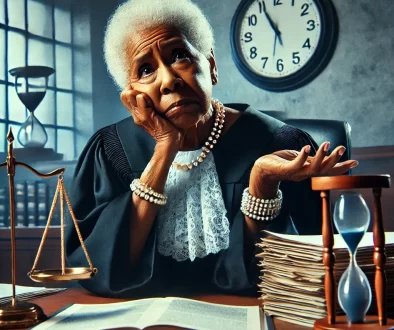Summary Adjudications: Understanding CPLR §3212
Nowhere is this more evident than in the context of summary adjudications, where the procedural safeguards outlined in CPLR §3212 play a pivotal role in ensuring that the rights of all parties involved are respected and upheld. Let’s explore the significance of CPLR §3212 in safeguarding due process and fairness in summary judgment proceedings.
Upholding Due Process
CPLR §3212 embodies the implicit understanding that summary adjudications must adhere to the principles of due process. At its core, due process guarantees that individuals are afforded a fair and impartial legal process before being deprived of life, liberty, or property. In the context of summary judgment, this means that parties must be given a meaningful opportunity to present their case and challenge the evidence against them.
Presentation of Supporting Evidence
One of the key provisions of CPLR §3212 is the requirement that parties seeking summary judgment must present supporting evidence in admissible form. This ensures that the evidence submitted is reliable, relevant, and subject to scrutiny. The movant must establish their case or defense through evidentiary proof that meets the standards of admissibility, thereby preventing the use of hearsay or unreliable evidence to support a motion for summary judgment.
Standard for Granting Summary Judgment
The law governing summary judgment in New York, as outlined in CPLR §3212, establishes a stringent standard for granting such relief. A court may grant summary judgment only if the moving party demonstrates that there is no genuine issue of material fact and that they are entitled to judgment as a matter of law. This standard reflects the underlying principle that summary judgment does not deny parties a trial but rather determines that there is nothing left to try based on the evidence presented.
Procedural Safeguards
CPLR §3212 incorporates procedural safeguards to ensure that both substantive and procedural due process are satisfied. For instance, the statute specifies the type of supporting proof that must accompany a motion for summary judgment, including affidavits, pleadings, depositions, and written admissions. Additionally, the movant must establish their cause of action or defense through evidentiary proof in admissible form, further reinforcing the requirement for reliable and credible evidence in summary judgment proceedings.
Conclusion
In conclusion, CPLR §3212 serves as a cornerstone of summary judgment practice in New York, ensuring that summary adjudications comport with the principles of due process and fairness. By establishing procedural requirements for the presentation of supporting evidence and setting a stringent standard for granting summary judgment, CPLR §3212 helps to safeguard the rights of litigants and promote the integrity of the legal process. Ultimately, adherence to CPLR §3212 helps to ensure that justice is served in summary judgment proceedings, maintaining the balance between efficiency and fairness in the resolution of legal disputes.
I’m Randy Morano—a father, author, and staunch advocate for parental alienation awareness. My journey through the depths of parental alienation has transformed me into a passionate advocate, dedicated to shedding light on this overlooked form of emotional abuse.
As a survivor, I understand the profound impact of parental alienation firsthand. Through my writing and advocacy efforts, I aim to raise awareness, empower others, and provide support to families in need. Join me in the fight for change and hope.


